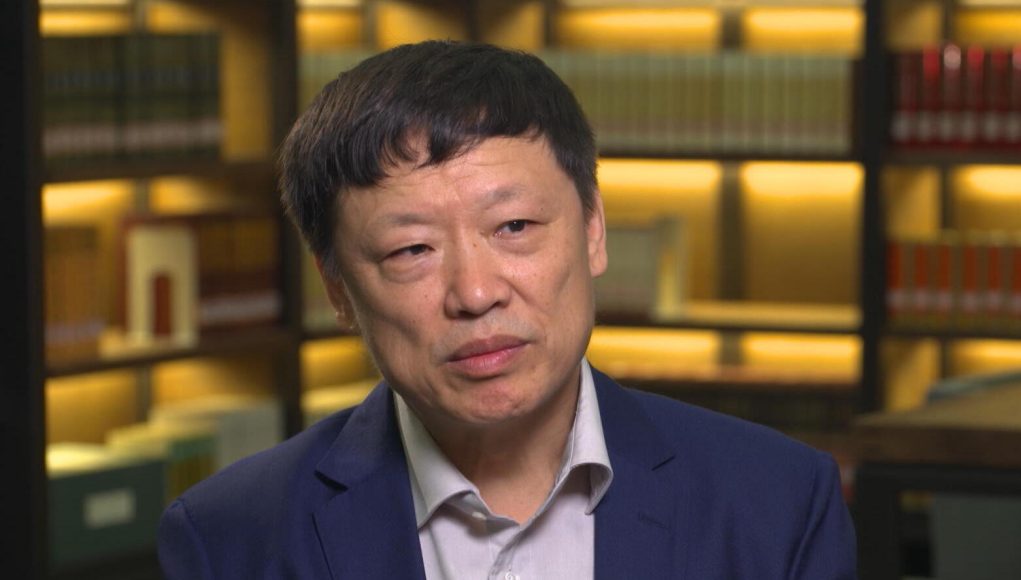(30.5.2025 – Singapore) A post by Hu Xijin (胡锡进 ), former editor-in-chief of China’s Global Times, that the wide disinterest in sex among young Chinese, referred to as “sexual depression” (xingxiaotiao), being one of the reasons behind the country’s weak consumer spending has attracted praise for his candour in bringing up the issue as well as condemnations for missing the root of the economic problem.
“My judgement based on intuition is that sexual apathy is one of the major reasons for (China’s) sluggish consumption. We shouldn’t be ashamed to make this connection and must recognise this fact. Sex is one of the basic human needs. As the old saying goes, ‘desire for food and sex is part of human nature’; it’s always been this way,’’ posted the veteran media man on China’s Weibo platform last Monday.
“If sexual life becomes dull, a significant part of people’s interest and drive to spend disappears with it,’’ added Hu, who served as editor-in-chief of Global Times from 2005 to 2021 when he retired. Hu remains a highly influential figure in the Chinese media landscape, and his views, which he expressed through various media platforms, often spark widespread discussions online and offline.
Global Times is a Chinese state-run newspaper focused on international news and known for its nationalistic and patriotic tone as well as a tough stance on foreign affairs.

“Sexual fantasies and imaginations aren’t all obscene. Some are subtle, even subconscious, but they can stimulate consumption, make people more active, and enhance the dynamics of social milieu,” Hu carried on in his Weibo post.
“If young people experience ‘sexual depression’, it will lead to low sexual desire. Men prefer to stay at home after work, and women lose interest even in buying pretty clothes. It must be acknowledged that sex is an important driver of consumption,” he elaborated.
He argues that China should have an environment that supports a “healthy and normal sexual culture,” and warns against being overly harsh when it comes to issues related to sex. Standards for labels such as “pornographic” or “obscene” should not be overly broad, as this may deter healthy sexual expression, he proposed.
Many studies have indicated a trend in China where increasing number of young people report no involvement in sexual activity. Causes mentioned include work stress; economic pressures such as high living costs, housing prices, and financial instability; changing social values, and preference for virtual connections over face-to-face intimacy.
Last year a joint survey by Beijing University and Fudan University found that only about half of the Chinese adults born between 1995 and 2003 have sex at least 1 to 2 times per week, much less frequent as compared to those born in the 1980s and early 1990s, the China Digital Times pointed out.
Other figures reveal an even “colder” picture: among the youngest Chinese adults, 14.6% of men and 10.1% of women said they did not have sex in the past year. The proportions are higher than among those born between the 1970s and early 1990s, the newspaper added, quoting the survey.
Hu’s post has attracted both support and opposition in China’s online space. One post in news.qq.com gave him kudos, saying that a view gaining traction across the world is that economic prosperity requires the drive of “animal spirit” and libido. “On the other hand, ascetic culture will lead to a repressive social atmosphere and dampen zest for entrepreneurship, consumption, and social interaction,” it added.
Another post, also published in news.qq.com, contested Hu’s view, pointing out that love and sex by right are free commodities, but they also require devotion of time and material resources. “If every young person could enjoy even half the retirement benefits and welfare provided to Hu Xijin, I believe their spending would immediately improve. Not a small increase, not a moderate one, but a substantial surge.” It added.
Yet another in news website Sina suggested that the deeper symptoms of “sexual depression” are hidden in the folds of everyday life. Just look at the corporate workers eating pre-packaged meals while working overtime in office buildings; lonely men scrolling through live streams late at night yet powerless to go on dates offline, and urban women swapping lingerie for plain cotton baggy pants,” it lamented.
“These phenomena are not the triumphs of asceticism, but the collapse of biological instincts under the heavy pressure of economic survival. The human physiological system has automatically classified sexual desire as a ‘non-essential expenditure of energy’”, it mused.
China’s consumption levels remain relatively low for years due to a combination of factors, including high savings rates, economic uncertainty, and structural challenges. If consumption remains weak and investment continues to contract, the economy of China could tip into stagnation or recession, warned some Chinese media.





































